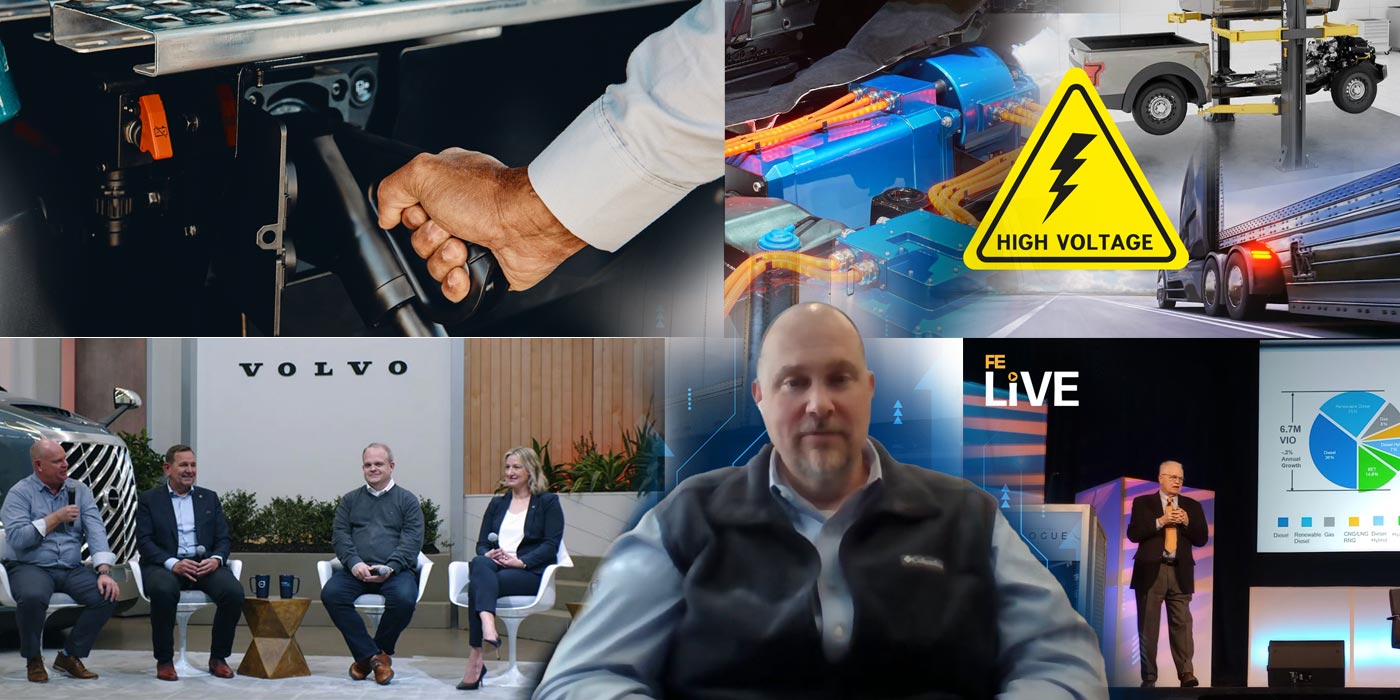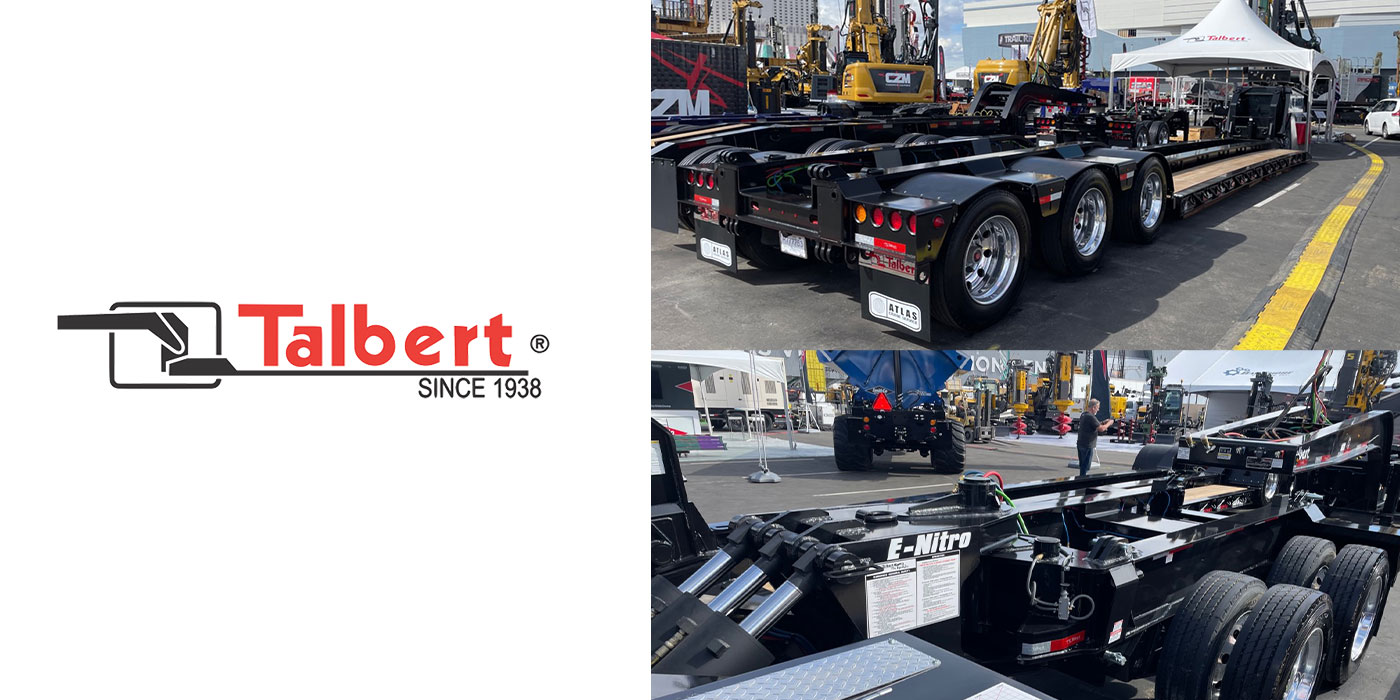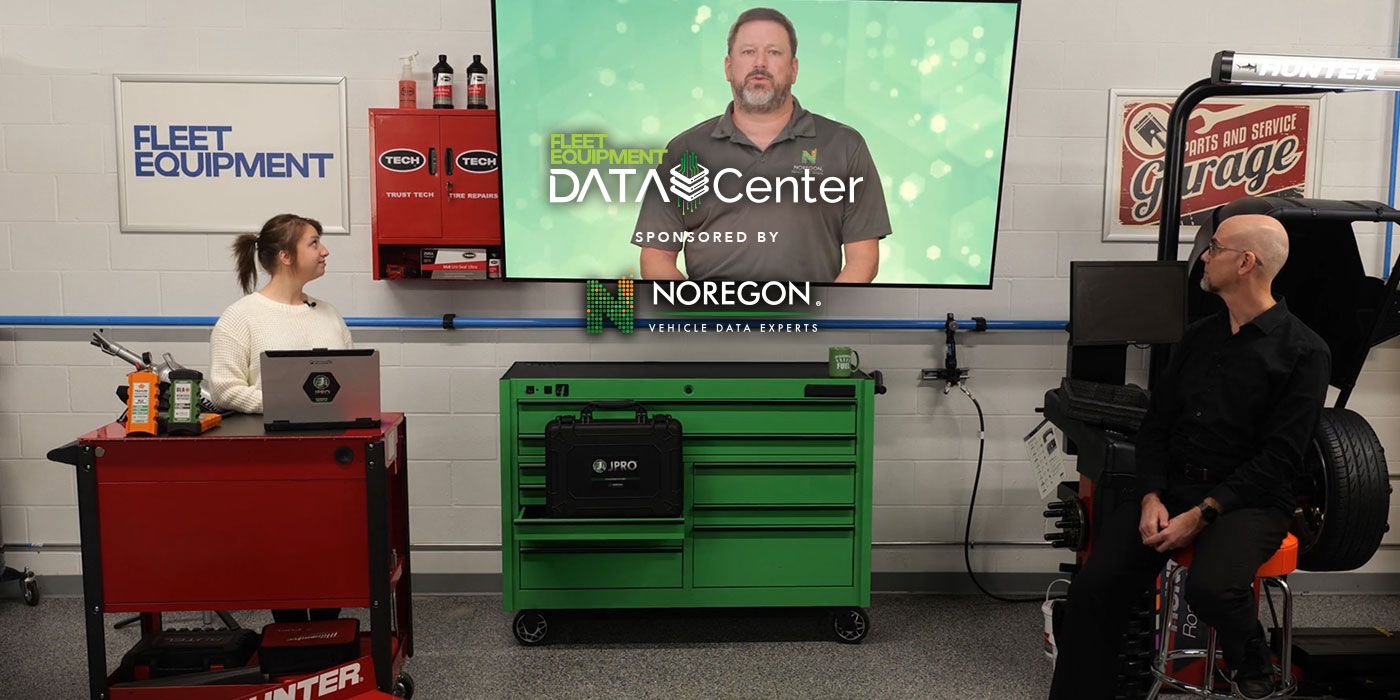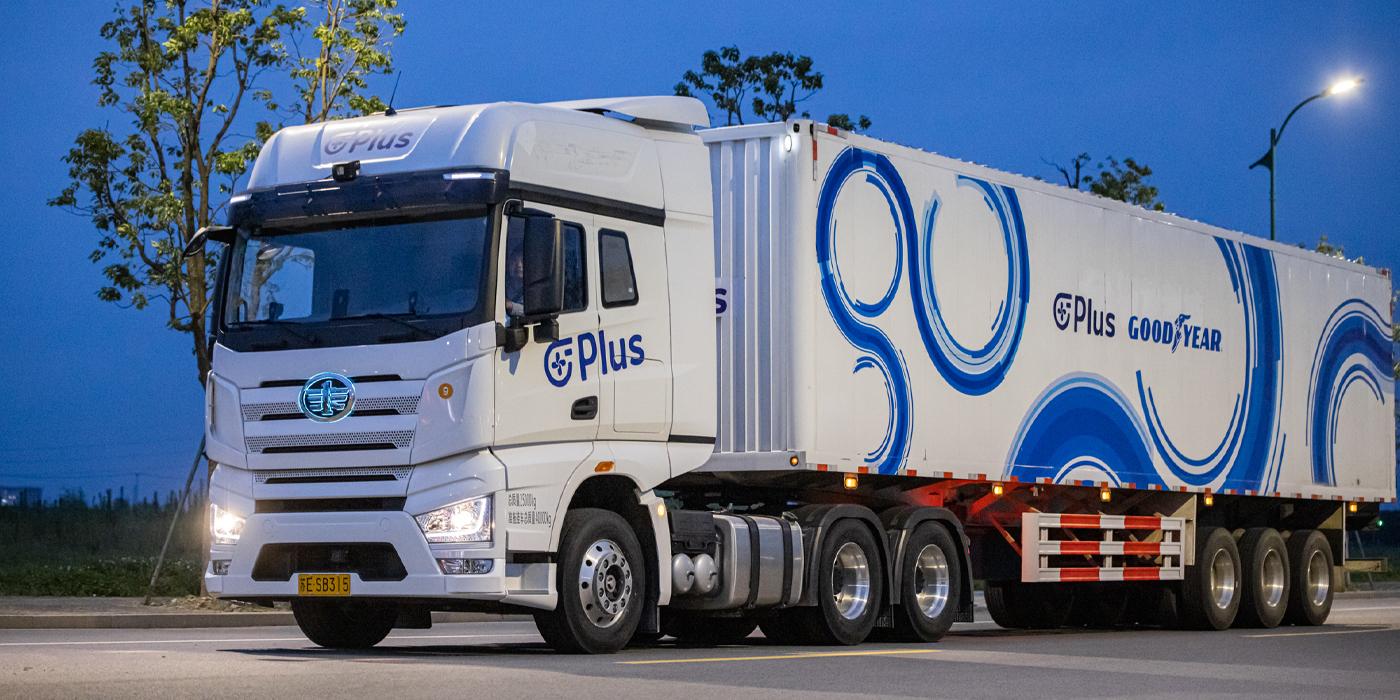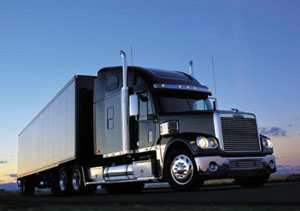 There is little doubt that the economy is improving—slowly, but it’s going in the right direction after some hard times that have lasted far too long. If economists are right this time, what will you need to do to make sure your fleet is in a position to respond to a growing economy? Do you need to invest in equipment? Can you? If so, should you lease or purchase new trucks and/or trailers?
There is little doubt that the economy is improving—slowly, but it’s going in the right direction after some hard times that have lasted far too long. If economists are right this time, what will you need to do to make sure your fleet is in a position to respond to a growing economy? Do you need to invest in equipment? Can you? If so, should you lease or purchase new trucks and/or trailers?
While no one seems to be forecasting a raging bull market in the next couple of months, all signs point to an improving economic situation, particularly for the trucking industry. For example, Kenneth A. Turner, president and CEO, SunTrust Equipment Finance & Leasing Corp., recently said, “We’re beginning to see signs of growing pipelines and a strengthening in fourth quarter bookings that combine to foster increased optimism heading into 2011. New business volume appears to be most robust in the areas of trucking, technology and healthcare.”
And the Associated Press reported “Demand for iron and steel rose a sharp 21.7%, the raw materials for a raft of goods. That suggests factories are gearing up to produce autos to appliances in the months ahead. The Institute for Supply Management said its index of manufacturing activity rose to 57 in December from 56.6 in the previous month. Any reading over 50 indicates growth.”
With that said, if you still have trucks parked because of poor demand, you will more than likely soon need to put them back into service. You will also need to be ramping up your maintenance operations if you service your own equipment, and you may shortly be in the market for new equipment. All good problems to have, but that being the case, should you lease or purchase that equipment?
That decision depends on much more than the size of the monthly check you would have to write to either a lessor or lender. Also to consider on the finance side of the ledger are tax savings, which depend on your company’s tax rate, as well as the net present value of the money required—all matters much better left to your finance department or tax advisor than to fleet managers. You can, however, get a good comparison of expected cash requirements of leasing versus purchasing equipment from calculators available on the Internet. For example, go to lease-vs-buy.com and fill in the blanks.
Private fleet operations
While there are many fleets that operate with a mixture of leased and owned equipment, most operations either own or lease the majority of, if not all, their road equipment. If you currently own your fleet and it’s more than a few vehicles in size, you already have maintenance facilities available to you, either contracted or owned. If you currently lease your fleet, you are not likely to be interested in building shop facilities and hiring a complete maintenance staff, even if it were possible to find qualified managers and technicians.
Private fleets have always been the primary customer base of large leasing companies. In general, firms involved with retail, wholesale, service, manufacturing operations etc. often need dedicated transportation resources but recognize that they are not, and don’t want to be, in the trucking business. Although there are countless for-hire operators that offer excellent service to such companies, many of these firms need to have day-to-day control of the trucks they use.
Private fleet operators generally want trucks to be available whenever transportation is needed to carry on their primary business activities. They often like to have their company message painted on the trucks they use. They also like the idea of knowing exactly what their monthly expenditure for trucks is going to be, a figure that can therefore be easily incorporated in their overhead costs. They do not, however, want to be responsible for their fleet’s maintenance nor tie up financial resources to purchase trucks that could be better used to fund or expand their primary businesses.
Such operations are, in short, perfect customers for leasing companies. John Flynn, president of Fort Lauderdale-based Fleet Advantage, said “With a lease, there is no money down. You normally have no residual risk. What we’ve really done is taken all the risk away. It’s a way to insulate yourself from risk.”
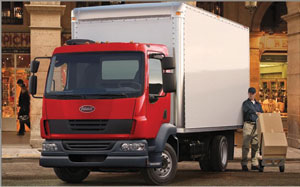
John Conklin, a commercial leader at GE Capital, echoes this, saying, “Companies that own equipment must consider asset utilization risks. For fleets, one common example of this type of risk is in under- or over-estimating the miles they’ll run over a five-year lease for each truck in the fleet. To manage this risk and lower overall fleet operating costs, fleets should consider a lease that mitigates excess mileage charges while providing for rebates on underutilized units.”
Flynn said, “We look at all the metrics to include bonus depreciation and operating costs, trying to focus on leasing equipment by the mile, so a fleet can get full advantage out of a truck.”
For-hire fleets
If you operate a for-hire fleet it, is most likely that you manage your own maintenance, either in your own shop with your own personnel, or have contracted with an outside firm to do your maintenance according to your specifications. As a result, when you’re in the market for new equipment to augment your fleet or replace older vehicles, you are more likely to choose a purchase over a lease.
Experienced fleet managers understand their own operations and the road equipment that will best serve their needs. Maintenance records provide them with evidence of the best vehicle specifications for their fleet’s particular application. A purchase allows the fleet to not only fine-tune its specs, but to actually have multiple suppliers bid on their business. Since lessors normally have an eye toward the residual value, they may be somewhat reluctant to provide a vehicle with specs that are out of the ordinary.
The best of both worlds
While most fleet operations either buy or lease their equipment because of the advantages offered by the two modes of acquisition, they may find that a combination of the two might offer advantages. It makes no difference how a fleet acquires new assets, those assets must still be managed. Darry Stuart, president and CEO of DWS Fleet Management Services, said, “When you lease vehicles, it doesn’t mean that you can give up managing those assets. The maintenance component of a lease is for normal maintenance, not for problems caused by abuse or accidents. Leasing companies are not going to pay for your inability to manage leased assets in a manner that precludes the need to do repairs.”
There are situations that can make it advantageous for private fleets that normally lease to purchase some equipment and have it maintained at a dealership or a private maintenance vendor. For example, private fleets often have their trucks located at remote locations that might not have any of their lessor’s service facilities nearby but have a dealership or a trusted maintenance repair facility in the vicinity. In such a case, it may well be advantageous for the fleet to purchase equipment to serve their customers in that location. Low mileage operations also might find it better to purchase. Fleet Advantage’s Flynn said, “A fleet that operates a low mileage fleet is better off owning its equipment. High mileage operators are better off leasing.”
For-hire fleets, for similar reasons, also might find it advantageous to lease some of their equipment. For example, a for-hire fleet, particularly one involved in P&D operations, might find business opportunities in locations outside its normal range of operations. Such an opportunity is likely to be too limited to open a maintenance facility in the new location, so leasing is a possibility. Stuart said, “Regional leasing companies often manage their firms with a good understanding of and a response to their customers’ needs. Monetary impact is often less important to these companies than it is for nationals.”
Keeping the books
As one might expect, there are many kinds of leases. In general, they can be divided into capital leases, which are essentially a way to purchase a vehicle with assets being carried on balance sheets, and operational leases, the kind almost always used by fleet operators, which offer a full array of lessor services, including maintenance. Only the latter offers you the opportunity to receive off-balance sheet treatment. Such leases must comply with conditions outlined by the Financial Accounting Standards Board. The lease would need to be capitalized on the balance sheet if any of the following four criteria are met:
1. The present value of the minimum lease payments at the beginning of term equals or exceeds 90% of the property.
2. The lease contains a bargain purchase option.
3. The lease automatically transfers ownership of the property to the lessee by the end of the lease.
4. The lease term equals 75% or more of the estimated economic life of the asset.
There is the likelihood that changes in standard accounting practices will preclude the opportunity of companies to keep leased assets off their balance sheets. According to Olen Hunter, director of sales for PacLease, “There will be on-balance sheet requirements going forward.”
There is another development that greatly affects current accounting practices. To help stimulate the economy, the president signed the Tax Relief, Unemployment Insurance Reauthorization and Job Creation Act of 2010 last December. This legislation provides a 100% depreciation bonus for capital equipment placed into service after Sept. 8, 2010 through Dec. 31, 2011. For equipment placed in service after December 31, 2011 and through Dec. 31, 2012, the bill provides for 50% depreciation bonus. It applies to new equipment only.
While this is an important development for any fleet in considering the purchase of new trucks, it also will make leasing more attractive. Fleet Advantage’s Flynn said, “This will be a boom for leasing. The companies that can use these write offs are the larger institutions—banks, insurance companies etc. We package up $20, $30 and $40,000,000 worth of leases and transfer beneficial ownership to financial institutions that can use the depreciation. In exchange, we get reduced rates on the cost of funds. Everyone in the industry should realize that the cost of funds in these transactions is going to drop significantly because of this.”
Bottom line? Do your homework. If you’re going to acquire new equipment and normally lease, consider a purchase. If you normally purchase, consider a lease. A change in your current mode of acquisition might be beneficial. In either case, make sure you take full advantage of all the financial possibilities available to your fleet.

